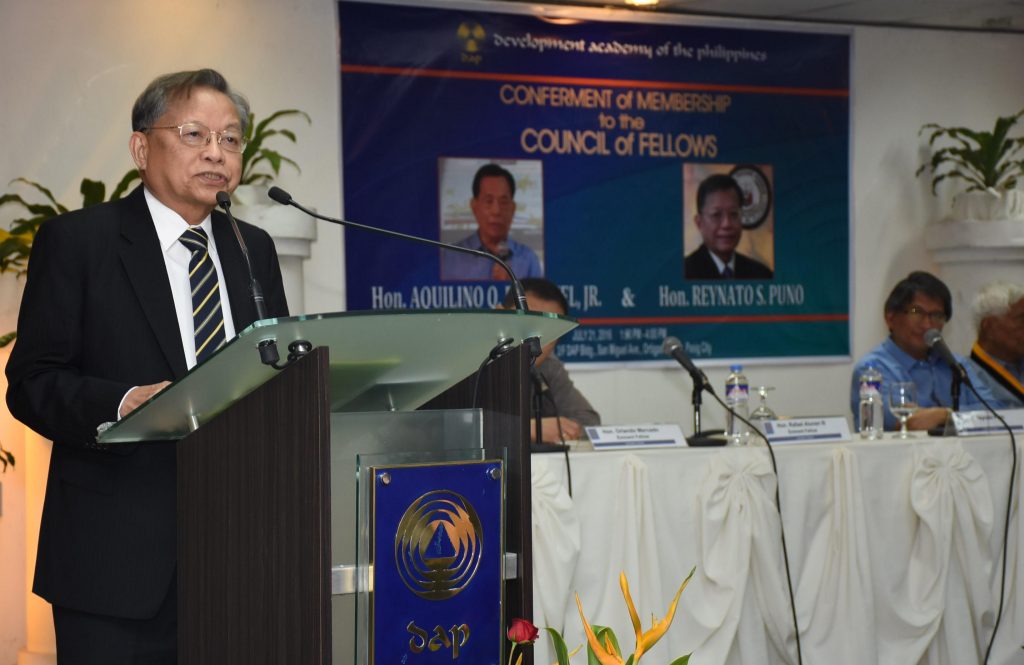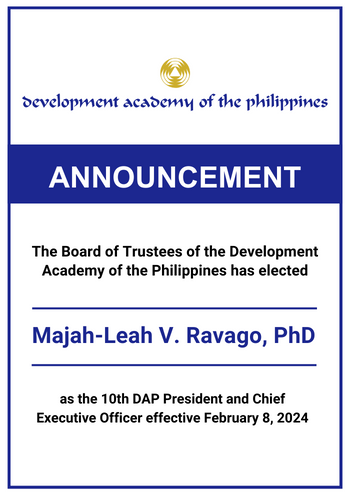
Former Supreme Court Chief Justice Reynato Puno recently pushed for a “hybrid” type of constitutional convention that would amend the Constitution and pave the way for a change into a federal system of government.
Speaking at the Forum on Federalism sponsored by the Development Academy of the Philippines’ Council of Fellows at the Virata Hall of DAP Pasig, Puno said that such a type of con-con would see delegates being elected at large and a select group of legislator representatives being appointed by Congress to the body that would decide changes in the Constitution.
Such changes would enable the country to shift from a highly centralized form of government into a federal system, as proposed by various quarters, including no less than President Rodrigo Duterte himself and such highly-respected civil society leaders as former Senate President Aquilino “Nene” Pimentel Jr., who along with Puno was the main speaker in the forum that also served as an occasion for the conferment of their membership to the DAP Council of Fellows.
Method of amendment
Puno, who spoke on the judicial system in federalism, appeared to favor a method of constitutional amendment different from that of a constituent assembly, where Congress itself and appointed representatives would convene to undertake the amendments, or a people’s initiative.
Puno’s “hybrid” method in constituting the body, however, would include elements from both a con-con and a con-ass, which is a group made up of members of Congress joining delegates elected in a con-con.
The former Chief Justice stressed that “uniformity of thought cannot be imposed on diverse cultures” as Filipinos have, saying that what plagues the Philippines is “our multi-cultural reality that colonizers and imperial Manila tried in vain to overcome” through economic control and an educational system that promoted one culture and religion as superior over all others.
Jose Rizal
Puno said that no less than the country’s national hero, Jose Rizal, advocated federalism in his writings, including a piece he wrote entitled “The Philippines a Century Hence.”
The highly-respected legal expert opined that the judicial system, as well as mutual advantages for the people, is frequently the most neglected area of concern in formulating a Constitution in the Philippines. He lamented the fact that the judiciary to this day has no financial independence in spite of there being three branches of government, including the executive and legislative branches that control the purse and the budgets, thus holding the judiciary under its control.
Unlike in Great Britain, however, Puno said that the judiciary in the Philippines can stop or interfere with the other branches of government through its decisions under the so-called concept of politicization of justice or judicialization of politics, where the Supreme Court can strike down the powers of elected officials.
British parliament
In contrast, the sovereignty of the British parliament cannot be diminished by the courts, with the executive, legislative and judicial branches of government being one and the parliament being regarded as the protector of the people’s rights.
Puno also discussed other models of federalism, including the federal-presidential form as exemplified by the United States, which Pimentel himself favors, and the French federal-parliamentary model that Duterte on the other hand prefers.
Under the US model, the supremacy of the Constitution is recognized. The government is also divided into the executive, legislative and judicial branches under a system of checks and balances.
Under the French model, a constitutional council is integrated with the legislature, previewing proposed laws prior to their enactment. The High Court also acts as the Commission on Elections and provides opinions on constitutionality issues and their conformity with foreign policy.





